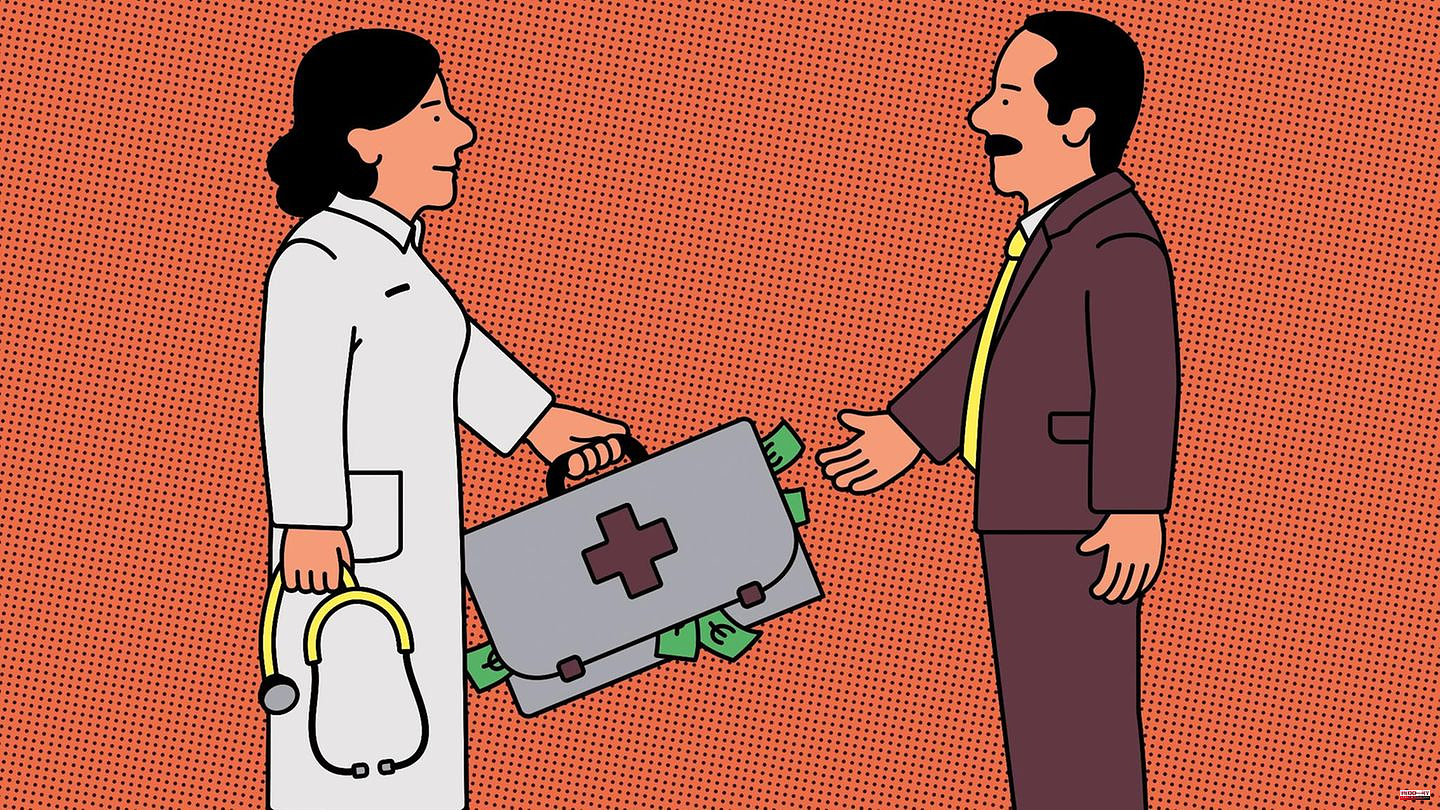This article is an acquisition from Capital, Capital's premium digital offering. For you as a stern PLUS subscriber, it is available exclusively here for ten days. It will then be available again exclusively for Capital subscribers at www.capital.de/plus. Like stern, the business magazine Capital belongs to RTL Deutschland.
The first glimpse is of an almost empty waiting room. It's November drizzly weather outside and sickness rates are high in Berlin, but there are just two patients sniffling in the bright foyer of the family doctor's practice - behind them is a screen with a QR code: whoever scans it gets tips on vitamins. At the reception desk, two people with headsets look at monitors; no ringing telephones disturb the peace. Julian Kley and Vlad Lata, the two founders of the family doctor chain Avi Medical, are waiting in a vacant treatment room. One of the two doctors is not here today. Both wear T-shirts with a discreetly printed company logo.
No patient should sit around here for any length of time. “Ten minutes of waiting time is our current average,” says Vlad Lata, silver-rimmed, quick-talker. And that's still too long, says the 33-year-old IT developer. “Zero minutes,” he would be happy with that. The native Romanian points to the monitor in front of him, a control center for the practice on Spittelmarkt. In real time, all employees can see which patient is currently seeing which doctor, what treatments are going on in the large and small laboratory or who is doing the ultrasound. Every doctor and medical assistant has a “tile” that assigns them their tasks and patients. A color system sorted by red: acute, yellow: chronic, purple: check-up. There are fixed times for each type of illness: ten minutes for a cold, 15 to 30 minutes for prevention. If an appointment takes longer than expected, the program reschedules, says Lata enthusiastically. The system also distributes tasks between doctors and medical professionals. And of course, patients book their appointments online.
For Lata, this software is the beginning of a radical change in the healthcare system: the founder is convinced that today's medical practices will no longer be able to properly care for tomorrow's patients. Data analyzes and more technology are necessary so that people don't get sick in the first place and sick people can be treated better. There is a lack of doctors and medical staff for treatment and care. The Robert Bosch Foundation calculates that 4,100 general practitioners' practices in the country are already unoccupied, and by 2035 there will be 11,000. Others assume the numbers are much higher, as 30,000 general practitioners in Germany will quit by then.
At the same time, the costs of medication and devices are rising. People are also getting older than before and therefore sicker. Diabetes, dementia, heart failure, cancer and depression are on the rise. A global problem that hits Germany particularly hard. “Our health system is extremely inefficient,” says Kley. To be more precise: the third most expensive in the world, but only mediocre in terms of life expectancy and health. It swallowed up 474 billion euros, almost 14 percent of GDP, in 2021.
Kley and Lata have opened 17 practices with 46 doctors since 2020 in Munich, Hamburg, Berlin and Stuttgart. They want to grow to 25 practices across Germany by the end of the year. Always with the basic idea of “using technology to inspire doctors to provide better care for patients,” says Kley. They are financed by venture capitalists who have so far invested more than 80 million euros in the concept. The youngest of the Samwer brothers, Picus Capital, is one of the donors. The founders and the employees themselves hold more than a third of the shares.
It is an innovation that divides the country into two camps.
Access to all STERN PLUS content and articles from the print magazine
ad-free
Already registered?








